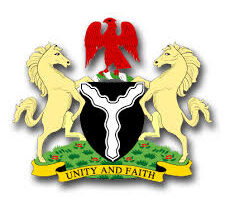The Nigeria Centre for Disease Control (NCDC) said Monday that even though evidence shows that younger people appear to be less at risk of contracting COVID-19 infection, low risk does not mean no risk.
This was disclosed by the Director General of NCDC, Dr Chike Ihekweazu, at a briefing of the Presidential Task Force on Control of COVID-19 in Abuja.
He said: “Reopening of schools will unquestionably bring benefits to students who have been at home for many months now and to the wider economy.
“In the past few months, we’ve been working with the Ministry of Education, schools and states and any other stakeholders, critically parents, to ensure the schools are safe as possible for children.
“As a parent myself, I understand the anxiety and concerns that parents have and I would like to reassure Nigerians that our schools reopening in various states—the safety of our children, our school staff are priority to the Federal Government of Nigeria.
“Remember that at the beginning of this outbreak, we had really limited knowledge on this new virus. Like the rest of the world on the transmission dynamics of the virus and critically how it affects children.
“The virus behaves differently from most other viruses that we know, where transmission has always been primarily driven by children, but now we’re better informed to continue to adapt our guidelines as new knowledge emerges.
“Drawing from what we now know in our context and in our country, with our experiences till date, we have worked with the federal ministry of education to develop new guidance for the safe reopening of schools across the country.
“We have put this in a very simple format so every school can pick this up across the country and adapt it to its own uses. We have done this carefully recognising that the resources, opportunities of schools differ around the country, but really focusing on principles of what needs to be done.
“Some schools will get there earlier, others will get there a little bit later, but the key thing is that we are all moving in the direction of safe reopening of our schools. These guidelines include recommendations around regular risk assessments; sharing of the medical status of every student; a clear communication plan so that when there’s an outbreak of the cluster of cases schools know exactly what to do, who to inform, how to respond; advice on designated handwashing areas, triad of patients, sample collection all these critical questions that every school in Nigeria will be asking how are we going to do this.
“More detailed guidelines on school reopening are on our website but this is to really give us in two pages some simple guides to everyone to use. We have taken into account the context in various schools and how we are going to achieve this in our environment with our own limitations.”
He said though there is evidence to show that younger people appear to be less at risk for COVID-19, low risk does not mean no risk.
“And we have seen this virus being transmitted into children, even though it is not transmitted as intensively as in adolescents and adults.
“Therefore, there must be synergy between parents, school authorities, state ministries of health, state epidemiologist and the federal government to mitigate the impact of COVID-19.
“Now, we have to move forward; reopen our schools, get back to school but try and do it as safely as possible to mitigate the spread of this virus.
“We are learning from other countries, where some reopened too aggressively and had to shut down school settings again, so we’re going to try very hard to do this safely, do it in a way that we can we reopen our schools but also continue protecting the health of all Nigerians,” he said.
Also speaking, Minister of Environment, Mr Muhammad Mahmood, said each state of the federation would get about 1,621 of the 60,000 environmental health workers already mobilised to states to ensure safe reopening of schools.




